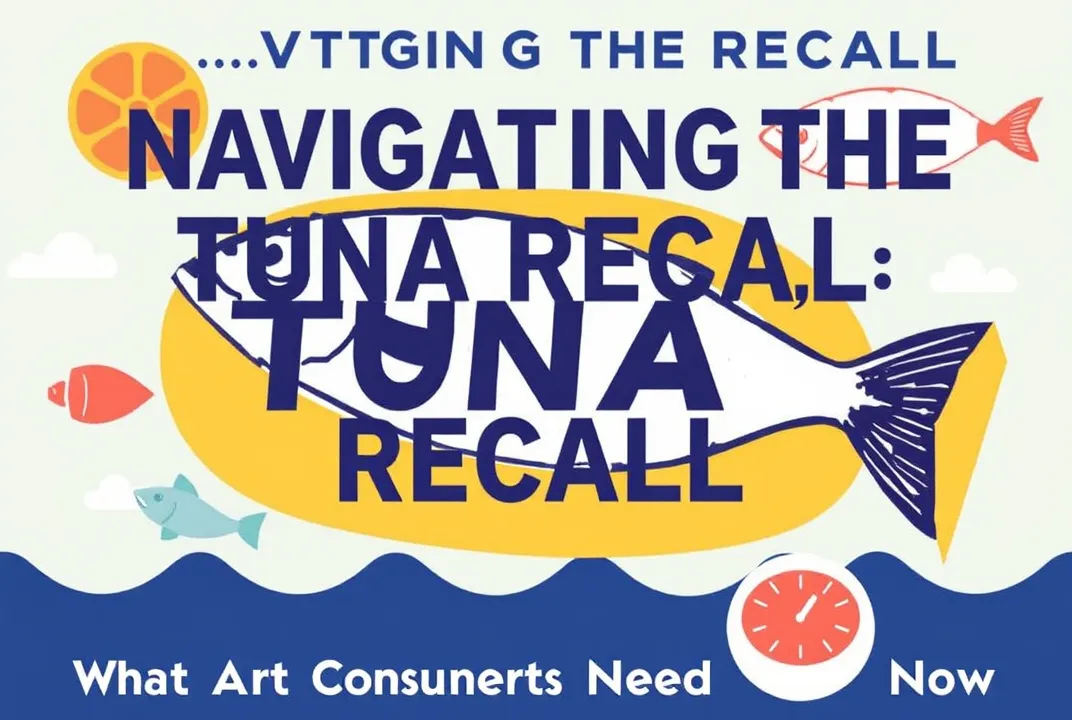Understanding the Tuna Recall: A Consumer's Guide
In the world of food production, tuna has long been a mainstay on grocery store shelves and restaurant menus. Whether as sushi, a salad, or a sandwich, this versatile fish has won hearts (and appetites) worldwide. However, recent developments have cast a shadow over its reputation, with widespread recalls due to health concerns. As consumers scramble to stay informed, this guide delves deep into what you need to know about the tuna recall to ensure safety and peace of mind.
The Unfolding Story of the Tuna Recall
In early October 2023, news broke of a significant tuna recall, impacting numerous brands across the United States. The U.S. Food and Drug Administration (FDA) issued an alert regarding potential contamination stemming from specific batches of canned and packaged tuna. This was not an isolated incident; rather, it was part of a growing trend in food recalls, particularly involving seafood.
As consumers learned of the recall, panic ensued. Supermarkets were flooded with questions, and shelves once stocked with tuna began to empty as shoppers sought to eliminate the risk of illness. Social media buzzed with discussions, and many shared their concern over how to identify affected products and whether they might have already consumed contaminated tuna.
What Sparked the Recall?
The FDA's investigation was prompted by reports of elevated levels of histamine in certain tuna products. Histamine can form when fish is improperly handled or stored, leading to scombroid poisoning, which can cause symptoms such as flushing, diarrhea, and abdominal cramps. While such reactions are generally mild and can resolve on their own, they can pose a serious risk to individuals with compromised immune systems, allergic reactions, or pre-existing conditions.
The specific brands affected included several household names, as well as smaller, regional companies. The FDA provided a thorough list of recalled products, emphasizing the importance of checking labels and staying informed.
The Implications for Consumers
Health Risks
The health implications of consuming contaminated tuna are serious and must not be taken lightly. While most healthy individuals may only experience mild symptoms, vulnerable populations—such as pregnant women, young children, elderly individuals, and those with weakened immune systems—may face more severe reactions. This aspect of consumer health underscores the need for vigilance during recalls.
Economic Impact
Beyond health, a recall of this magnitude has economic ramifications. Tuna producers, retailers, and restaurants relying on this fish face potential losses. Distributors are tasked with managing inventory and recalls, which can strain resources. The fish market, already susceptible to fluctuations, may see prices rise as demand shifts.
How to Stay Safe During a Recall
Check Your Pantry
First and foremost, check your pantry for any tuna products purchased recently, particularly those listed in the FDA recall. Look for the specific brand names, packing dates, and batch numbers. If you find any affected products, discard them immediately and report it to the retailer.
Stay Informed
To stay up-to-date, regularly check the FDA's website and your local health department's announcements. Both entities provide timely updates on recalls, including details about affected products and specific health warnings. Following these sources can help you make informed decisions about your food purchases.
Alternatives to Tuna
In light of the recall, you might consider alternative protein sources. If you're a fan of seafood, options such as salmon, mackerel, or shrimp can provide similar nutritional benefits without the associated risks. Opting for canned salmon, for instance, not only diversifies your diet but also supports sustainable fishing practices.
The Bigger Picture: Food Safety Awareness
This tuna recall serves as a critical reminder of the importance of food safety. The reality is that food recalls are not uncommon, and they can affect any product, from meats to vegetables to packaged snacks. Understanding the processes behind food safety—from production to distribution—is essential for consumers.
Educating Yourself
Empower yourself by learning how food safety regulations work. Familiarize yourself with the signs of foodborne illness and how to properly handle food in your kitchen. Simple habits, like washing your hands and cooking seafood to the appropriate temperature, can significantly reduce your risk of foodborne illness.
Engaging with the Community
Joining local food safety and health groups can keep you informed about food recalls and safety best practices. Engaging in community discussions also promotes awareness and collective vigilance. Together, consumers can advocate for better food safety regulations and practices within their localities.
Conclusion: Navigating the Tuna Recall with Confidence
As the tuna recall unfolds, it's essential for consumers to remain calm and informed. By checking products, staying updated through reliable sources, and understanding the broader implications of food safety, you can navigate this unsettling situation with confidence.
Ultimately, while tuna may face scrutiny today, the ocean is vast, and alternative sources of nutrition are abundant. As consumers, our choices matter. We have the power to advocate for safer food practices and make informed decisions for our health and well-being. By doing so, we can help shape a safer food industry for all.

